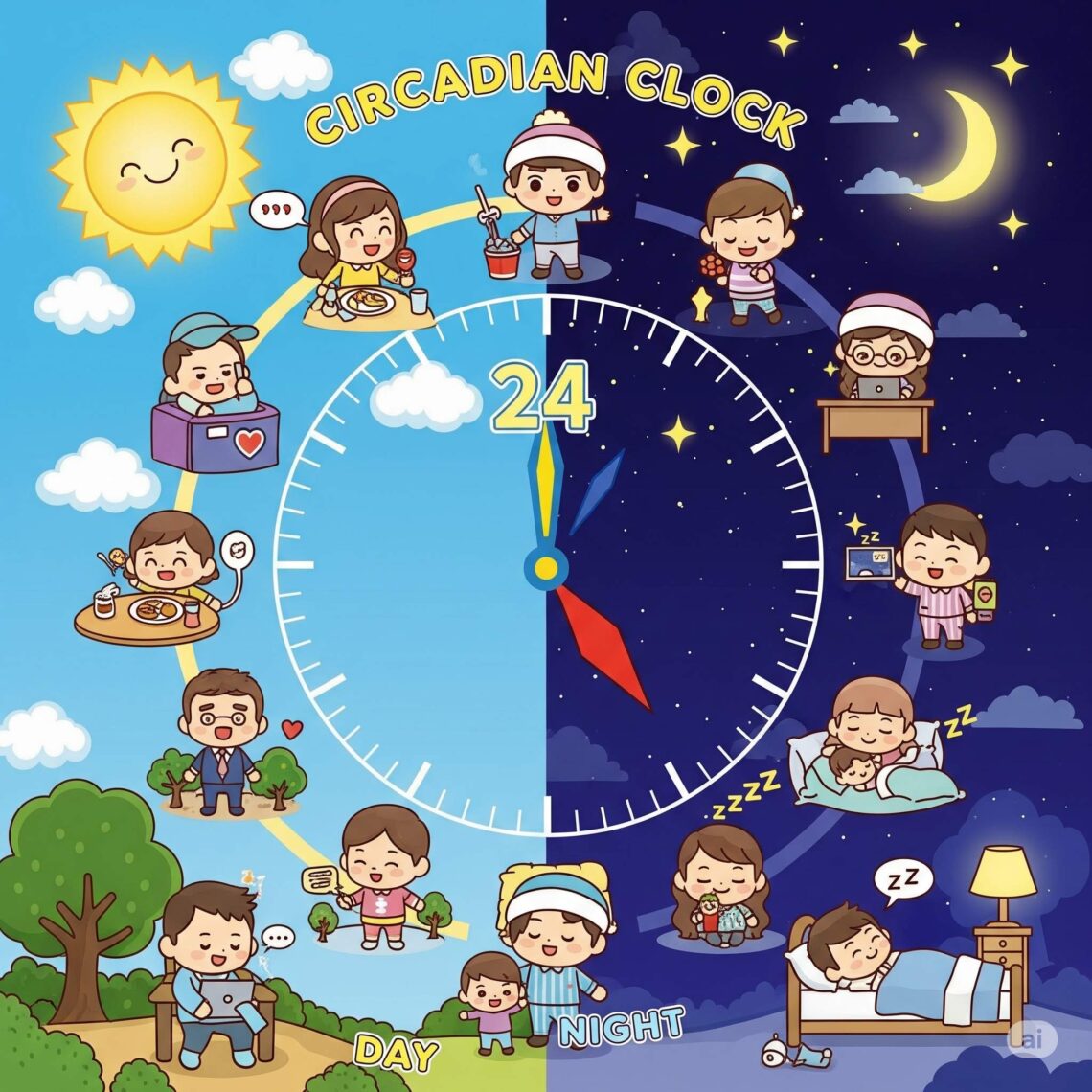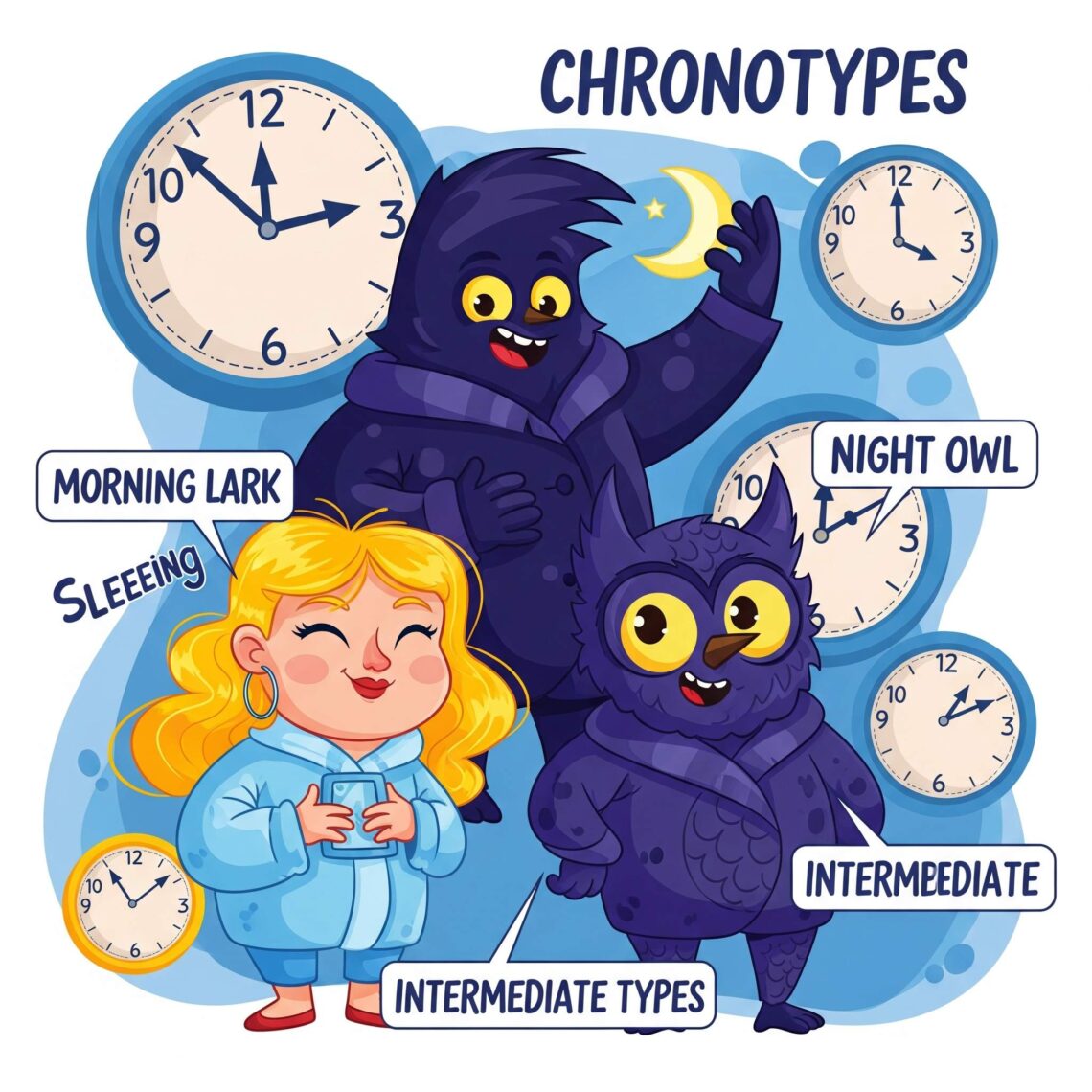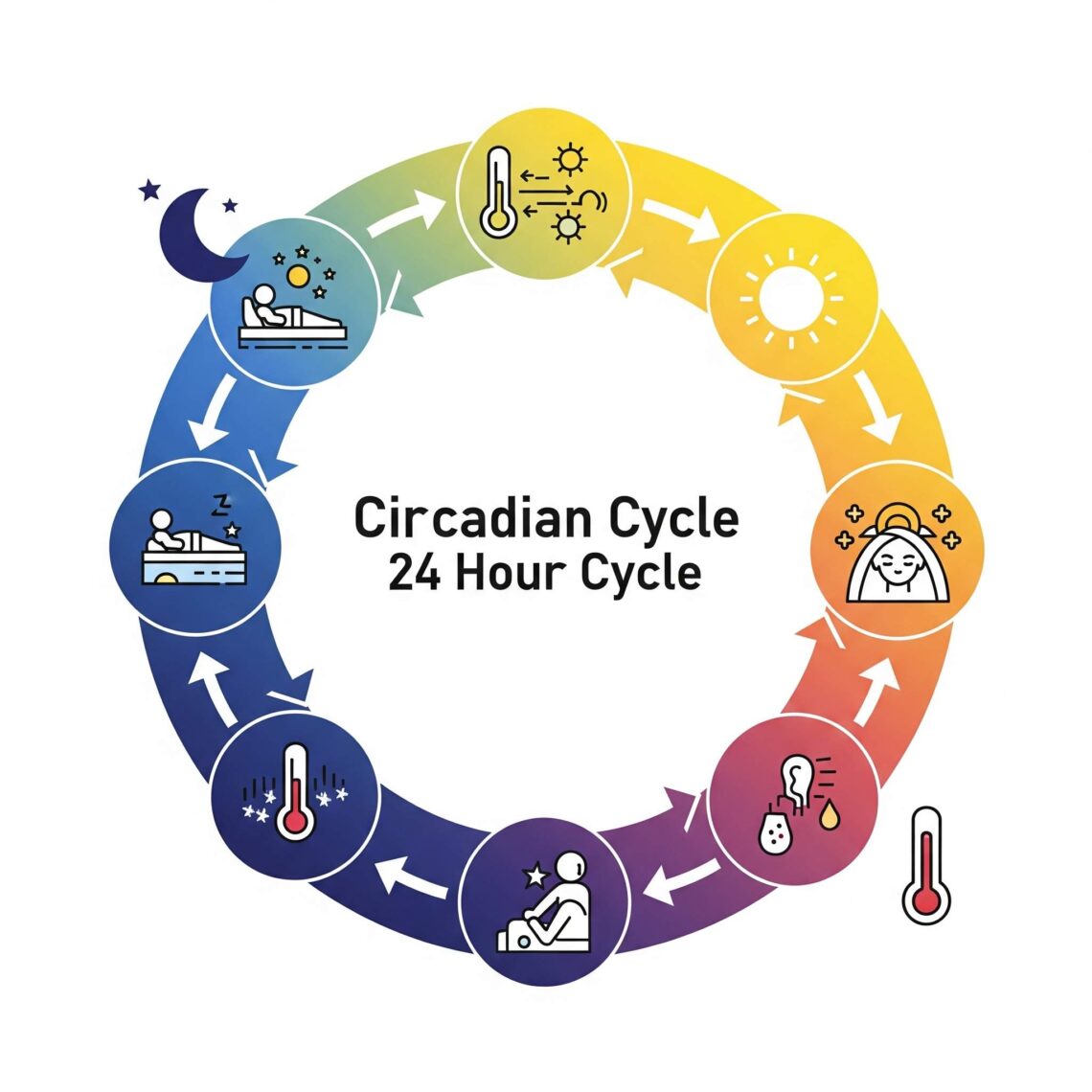The circadian clock, also known as the biological clock, is a vital internal timekeeping system that regulates nearly every process in the human body. From sleep cycles to hormone production, digestion, and even mental clarity, this 24-hour rhythm influences how we function on a daily basis. Understanding how the circadian clock works—and how to align with it—can dramatically improve your health, productivity, and well-being. The circadian rhythm is a natural, internal process that follows a roughly 24-hour cycle. This clock is governed by the suprachiasmatic nucleus (SCN) in the brain’s hypothalamus, which responds primarily to light and dark signals. When…
-
-
Have you ever wondered why some people jump out of bed at sunrise while others don’t feel alive until after midnight? The answer lies in your chronotype—your body’s natural preference for sleeping and waking. If you’re searching for what is a chronotype, this guide will explain everything you need to know about this fascinating biological concept and how it can transform your life. A chronotype is your unique biological rhythm that determines when you feel most alert or sleepy throughout the 24-hour day. It’s a personal sleep-wake preference regulated by your internal body clock, or circadian rhythm. Some people are…
-
The circadian cycle is a vital internal process that regulates your body’s functions on a roughly 24-hour schedule. This biological rhythm controls sleep-wake patterns, hormone secretion, metabolism, and even cognitive functions. Understanding the it allows you to align your lifestyle with your body’s natural timing, improving health and daily performance. What Is the Circadian Cycle? The term circadian cycle comes from the Latin circa (around) and diem (day), meaning a roughly 24-hour cycle. It is present in nearly all living organisms, including humans, animals, and plants. In humans, the circadian cycle influences many processes beyond sleep, such as body temperature,…


